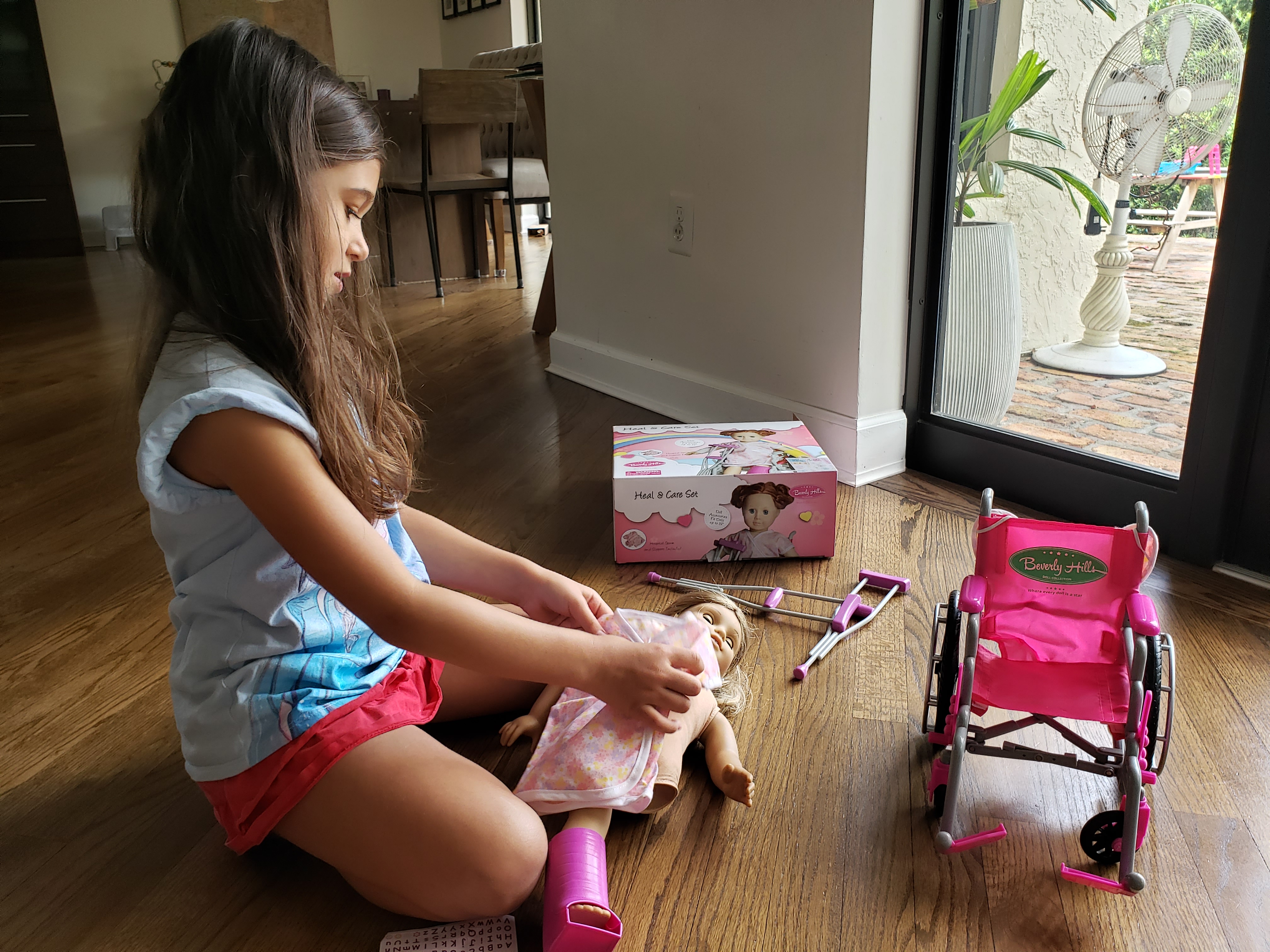The Importance of Normalizing Disabilities at a Young Age
Truth be told, I never imagined my life turning out the way it did. Living with a progressive chronic illness and advocating for other individuals also in the disabled population. But here I am, and I take my responsibility very seriously as the disabled population has a very long way to go for an equitable future.
That said, I refuse to turn this into a political piece as there are already so many circulating out there. I’d like to share an opinion piece in hopes that we can start normalizing disabilities at a young age. You see, having a six year old daughter myself, I am experiencing first hand just how impressionable these little ones are and perhaps if we normalize disabilities at a young age, folks like myself won’t have to go through the isolating experience I went through recently. I’ll share with you this very personal story because these stories are the ones that hopefully will strike a chord.
I recently attended an event that required a good amount of walking to get to there and it was also the first time I decided to bring my new cane. I finally broke down and admitted that walking with a cane might make my life easier. That said, I never imagined the emotional toll it would take and the barrier it would become to having social interactions. Eye contact is the first step to meeting new people, and every time I surveyed the room people would quickly look away. Perhaps they were trying to figure out why I was destined to walk in flats and with a stick, which is fine. I guess my point is, if it were normalized at a young age, it really wouldn’t make a difference and there wouldn’t be a need to look away. There was one person in the room who gave me an approving look for my cute attire and it was a girl about the same age as my daughter. I simply smiled back beaming with pride and joy for the future of our society. Let’s give kids the opportunity to see differences as just that, differences. Nothing more, nothing less.
Normalizing Disabilities at Home
 When my daughter's American Girl doll's leg became damaged, a light bulb turned on in my mind. Instead of running out to buy a new doll, we got the doll a wheelchair. It was amazing to witness my young daughter think about every detail and immediately make accommodations. She wanted to take the doll, that she never named because it was missing a leg, upstairs. She stopped at the steps and asked me for help. As I was walking up with her she realized that people in wheelchairs can't go upstairs and they need an elevator or help. Not only did she feel the desire to include her doll, that is now named Rose, in play with other dolls but she was also cognizant of the fact that we need to be more compassionate. I am so proud of her and happy to be doing my part to educate the younger generation. I am hopeful for the future.
When my daughter's American Girl doll's leg became damaged, a light bulb turned on in my mind. Instead of running out to buy a new doll, we got the doll a wheelchair. It was amazing to witness my young daughter think about every detail and immediately make accommodations. She wanted to take the doll, that she never named because it was missing a leg, upstairs. She stopped at the steps and asked me for help. As I was walking up with her she realized that people in wheelchairs can't go upstairs and they need an elevator or help. Not only did she feel the desire to include her doll, that is now named Rose, in play with other dolls but she was also cognizant of the fact that we need to be more compassionate. I am so proud of her and happy to be doing my part to educate the younger generation. I am hopeful for the future.
People with disabilities, whether they be physical, cognitive, invisible, or psychological shouldn't be treated differently. Walking long distances with my new cane makes my life easier, and just because it may be unusual to see someone like myself with it, it's exactly why we should be striving to normalize disabilities at a young age. Let's value more of what's on the inside as opposed to the outside.

